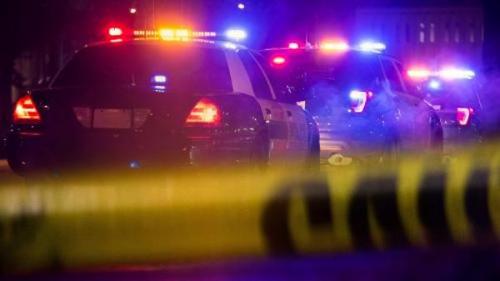Center for the Study and Practice of Violence Reduction Focuses on Actionable Solutions Rooted in Research
Against a rising backdrop of gun crime that saw homicides skyrocket by more than one-third in the past two years, the University of Maryland today announced the launch of a new research center that will focus on curbing community-based violence.
The Center for the Study and Practice of Violence Reduction, or Violence Reduction Center (VRC) for short, will make its findings freely available to the general public as well as federal, state and local leaders, who can use the data on community-based violence to apply appropriate mitigation strategies to their particular jurisdictions.
The center is the latest component of the 120 Initiative, a research collaboration of D.C.-area universities co-created by UMD President Darryll J. Pines to seek solutions to firearm violence. It is named for the more than 120 people who are killed by firearms on average every day.
“When the university co-launched The 120 Initiative earlier this year, we knew without question our faculty would answer the call to provide bold, creative and research-based ideas to curb gun violence–and violence, in general–in our country,” Pines said. “I am proud that this center dedicated to preserving lives and ending violence will have a home here at the University of Maryland.”
The VRC was made possible by support from Arnold Ventures, a philanthropy dedicated to tackling some of the most pressing problems in the United States, and will be housed in the College of Behavioral and Social Sciences’ Department of Criminology and Criminal Justice.
“To put it plainly, the mission of the VRC is to save lives by stopping violence,” said criminology and criminal justice Associate Research Professor Thomas Abt, who will lead the VRC. “By combining rigorous research with real-world know-how, we can help policymakers make the right choices in this critical public policy area.”
Abt, who arrived at the university this semester, is known for promoting violence reduction strategies that include community outreach to those likely to engage in violent crime, “hot spot policing” in areas of surging violence, and active intervention by community members to defuse disputes before more shootings occur. He started his career as a New York assistant district attorney, then went on to lead violence reduction efforts for the U.S. Department of Justice and the state of New York.
Currently, Abt is also a senior fellow at the nonpartisan Council on Criminal Justice, and chair of the council’s Violent Crime Working Group.
“I see my coming to UMD as a natural next step in this ‘research-to-practice’ journey where I can immerse myself in the science again, but always with an eye towards helping policymakers save lives,” Abt said. “I’m really looking forward to being a part of this intellectually vibrant community, sharing ideas for the betterment of the world.”
Abt also wrote the 2019 book, ”Bleeding Out: The Devastating Consequences of Urban Violence and a Bold New Plan for Peace in the Street,” which “offers a powerful scholarly yet accessible assessment of violence in America's cities,” said Robert Brame, criminology and criminal justice professor and chair. “With support from Arnold Ventures and the University of Maryland, Thomas will build on this foundation with the Center for the Study and Practice of Violence Reduction.”
Abt has already begun collaborating with other criminology and criminal justice faculty members: Professor Rod Brunson, who has focused on community-centered approaches to solving crime and safety problems, including recent research centered on gun safety in at-risk communities; and Associate Professor Bianca Bersani, who studies patterns and predictors of offending from adolescence to adulthood. He’s also working with Joseph Richardson, MPower and Joel and Kim Feller Professor of African American Studies and Anthropology, whose research focuses on interventions in patterns of violence that involve men from marginalized communities repeatedly becoming victims of violence.
Brunson called the VRC a timely and critical investment at a time when the public is increasingly insistent that fairness should be the bedrock of successful crime reduction strategies.
“Unfortunately, violent crime is disproportionately concentrated in disadvantaged Black and Brown communities, places where evidence-based police-citizen collaborations are sorely needed,” he said. “Thomas Abt has consistently been a leader in efforts to make distressed neighborhoods objectively safer. I am excited to have an opportunity to work together on a shared vision as part of the VRC.”
This article originally appeared in Maryland Today. The main photo is provided by iStock.



